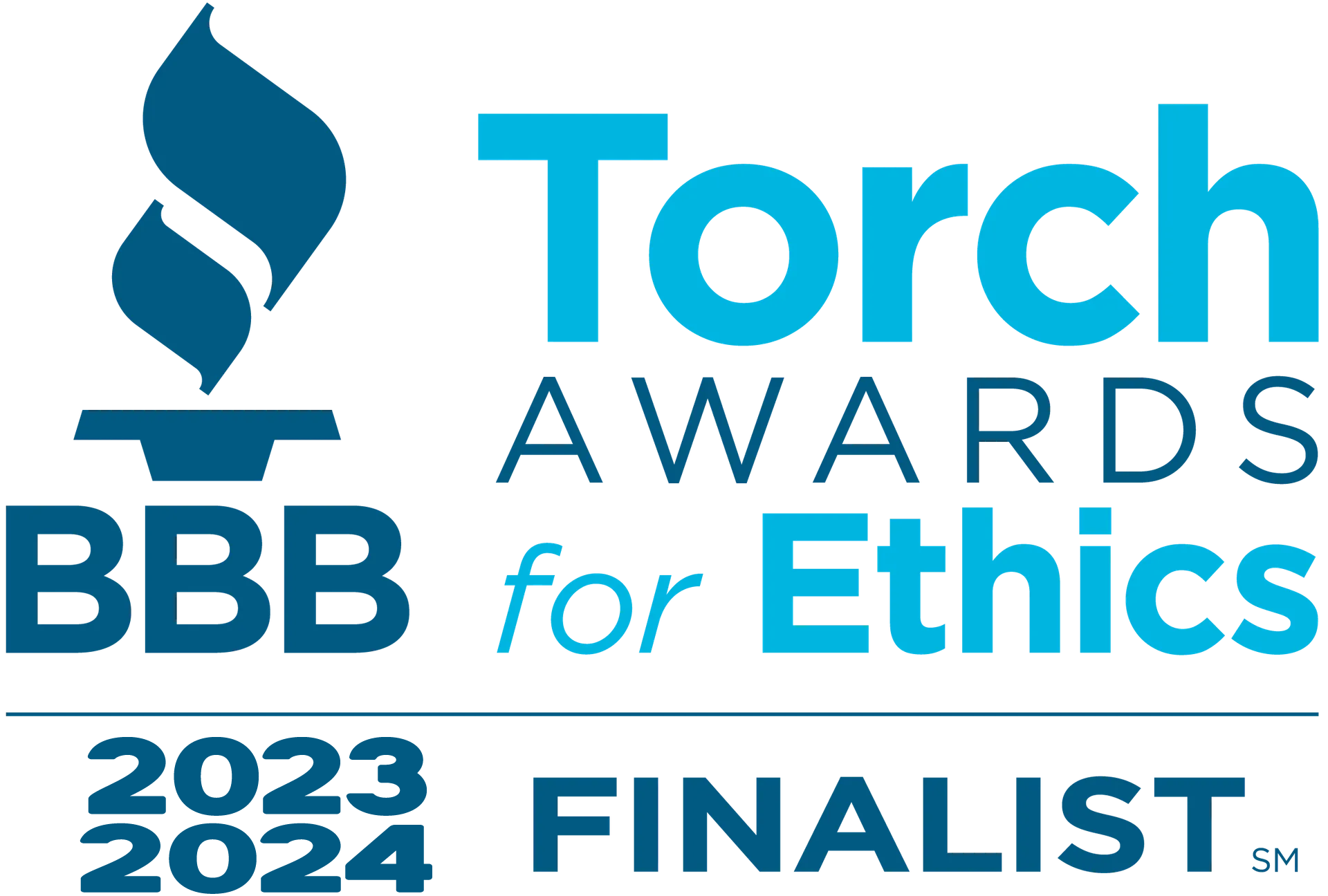

IRS Offer in Compromise: Everything You Need To Know
In this blog post, we'll unravel the mysteries surrounding OICs and guide you through the process step by step. Join us as we explore the eligibility criteria, application procedures, potential pitfalls, and the aftermath of an accepted OIC. So, grab your calculator, sharpen your tax knowledge, and let's embark on a journey to financial freedom. We’ll even explore a couple of backup alternatives you might be eligible for. And since sometimes it's best to bring in reinforcements, we'll also discuss why hiring a tax specialist could be your ultimate ace in the hole. Get ready to unlock the secret to settling your tax debts once and for all!

What is an offer in compromise?
An OIC is an agreement between you and the IRS in which your tax liabilities are settled for less than the full amount owed. This means you will submit your case to the IRS stating why you aren’t able to pay the full amount they want, and you will offer a smaller amount to pay instead. Sometimes the amount settled becomes significantly less, especially if you are from a low-income family. This is a good strategy, but bear in mind that it is not an easy or comfortable process. An OIC might not be a good fit for everyone, but if you’re willing to put yourself, your business, and your family under a microscope then you might end up reducing your liability by thousands of dollars.
The IRS may approve an OIC based on three distinct grounds:
1. If there is a legitimate legal disagreement regarding the existence or accurate amount of your tax debt.
2. When paying the full amount would impose significant economic hardship or be considered "unfair and inequitable" due to exceptional circumstances.
3. If the IRS has doubts about its ability to recover the full amount from you.
At this point, you might be asking yourself this question:

What is the acceptance rate?
Though many people do qualify for an OIC, not every offer the IRS receives gets approved. In 2022, the IRS received 36,022 offers In compromise. 13,165 of them were accepted, which means the acceptance rate is 36%. If you want to be part of that 36% you need to meet certain requirements that will make you eligible.
To qualify for an OIC, taxpayers must have filed the last 7 years of tax returns, have received a bill for at least one tax debt included on the offer, made all required estimated tax payments for the current year, and if the taxpayer is a business owner with employees, the taxpayer must have made all required federal tax deposits for the current quarter and the two preceding quarters. The IRS also considers whether you are in an open bankruptcy proceeding, in which case you won’t be eligible.
Are you eligible to apply for an offer in compromise?
An offer in compromise is an agreement between you and the IRS in which your tax liabilities are settled for less than the full amount owed. Answer this quick survey to check whether you could qualify for one. Please note, this tool is designed to give an approximation of eligibility. For a more in-depth evaluation, visit the IRS's page and answer their survey or call Capstone Tax Consulting, Inc. for a free consultation.
Are you in an open bankruptcy proceeding?
You are probably not eligible to apply for an offer in compromise, but there are other ways to find some tax relief. To find out what you could do, call Capstone Tax Consulting, Inc. today for a free consultation!
Have you filed all required federal tax returns?
You are probably not eligible, but there are other ways to find some tax relief. To find out what you could do, call Capstone Tax Consulting, Inc. today for a free consultation!
Have you made all the required estimated tax payments for the current year?
Estimated tax payments must equal either 100 percent of your total tax from the prior tax year, or 90 percent of the income tax you expect to owe for the current year. Divide the total by 4 to get your quarterly payment amounts.
You are probably not eligible to apply for an offer in compromise. All estimated tax payments that are due should be paid prior to filing an offer, but there are other ways to find some tax relief. To find out what you could do, call Capstone Tax Consulting, Inc. today for a free consultation!
Have you received a bill for the tax debt you're trying to reduce?
If you've filed your tax returns but haven't gotten a bill for at least one tax debt related to your offer in compromise, the IRS might return your application. To prevent the return of your offer, file your taxes within 12 weeks of asking for an offer in compromise and include a copy of your tax return with your application.
You are probably not eligible to apply for an offer in compromise, but there are other ways to find some tax relief. To find out what you could do, call Capstone Tax Consulting, Inc. today for a free consultation!
Are you able to pay off what you owe in a single payment or an installment agreement?
You may not be eligible for an offer in compromise, unless exceptional circumstances exist. To find out what you could do, call Capstone Tax Consulting, Inc. today for a free consultation!
Are you being audited by the IRS?
You are probably not eligible to apply for an offer in compromise, but there are other ways to find some tax reliefBut there are other ways to find some tax relief. Call Capstone Tax Consulting, Inc. today for a free consultation!.
You may be eligible for an offer in compromise. Call Capstone Tax Consulting, Inc. today to take the first step towards your financial freedom!
Applying involves a straightforward process comprising three essential components.
Firstly, you'll need to complete IRS forms 433-A and 656, which provide comprehensive details about your financial situation. In cases where you dispute the tax debt's validity or ownership, you can also submit Form 656-L.
Secondly, there is an application fee of $205 (subject to change), which is typically nonrefundable. However, if you meet the IRS low-income guidelines, you may qualify for a fee waiver.
Lastly, it's necessary to include an initial payment towards the proposed new balance due, sometimes as low as 1/24th of the proposed settlement amount. Throughout the application, you'll be required to furnish extensive information about your monthly income, assets, cash, debts, and various expenses such as rent, utilities, and groceries.
Generally, collection activities will be suspended while your offer is being reviewed, but penalties and interest will continue to add up. This is why at Capstone Tax Consulting, our philosophy is that a taxpayer should only file an OIC if it is done using proper procedure and has a high likelihood of success!

Things the IRS considers when reviewing offers in compromise
Usually, the IRS maintains a strict criterion for accepting an OIC, demanding that the proposed amount from the taxpayer matches or exceeds the reasonable collection potential (RCP). The RCP acts as a yardstick for the taxpayer's capacity to make payments, considering various factors. This includes the valuation of assets owned by the taxpayer, such as real estate, vehicles, bank accounts, and other properties. Moreover, the RCP encompasses projected future income, with certain deductions allowed for essential living expenses. Essentially, the IRS evaluates the RCP to determine if the offered amount aligns with what can reasonably be collected from the taxpayer.

What’s next after the IRS accepts your offer in compromise
Congratulations! You’ve successfully reduced your tax liability by thousands of dollars! Just keep in mind that the terms of the offer need to be met, and this means you need to stay compliant with your taxes for the next 5 years.
So how do you pay the newly agreed amount of your offer? You have two options:
-
Lump Sum Cash Offer: An offer payable in 5 or fewer installments within 5 or fewer months after the OIC is accepted. This payment should be 20 percent of the total offer amount, and afterward, you must pay off the remaining balance in five or fewer payments.
- Periodic Payment Offer. An offer is called a "periodic payment offer" under the tax law if it's payable in 6 or more monthly installments and within 24 months after the offer is accepted. You can make payments while you wait for the IRS to decide whether to grant you an OIC.
If the IRS rejects your OIC, you’ll be sent instructions on how to appeal. The IRS gives you 30 days from the rejection date to request an appeal. You may visit the official IRS website to get detailed instructions: https://www.irs.gov/appeals/appeal-your-rejected-offer-in-compromise-oic
It is important to point out that any payment you submitted with your offer will be applied to your tax liability, and it WON’T be returned to you upon rejection. This applies to the initial payment you made, whether through a lump sum cash offer or through a periodic payment offer.
Occasionally, instead of outright rejection, an OIC is returned to the taxpayer due to various reasons. This typically occurs when the taxpayer fails to provide essential information, has filed for bankruptcy, omits the required application fee or nonrefundable payment, neglects to file necessary tax returns, or has unpaid current tax liabilities while the IRS evaluates the offer. It's important to note that a returned offer differs from a rejection in that there is no option to appeal when the IRS returns it. Nevertheless, once the identified issues are resolved, the offer can be resubmitted for consideration.
If your offer was rejected, you could also consider other options to reduce your tax liability, which include an installment agreement or requesting to be considered currently not collectible. As tax experts, your friendly Capstone Tax Consulting, Inc would be very happy to guide you through which options are best for you.
Many people choose to go solo when it comes to solving their tax debts. There are many detailed instructions on the IRS’s website and even videos. While you could go through all of this yourself, hiring a tax professional would maximize your chances of having your offer accepted, and it would also take away the hassle of dealing with complicated paperwork if you don’t have a lot of time. Plus, it’s best to leave it to a specialist when it comes to crossing your “t”s and dotting your “i”s, especially when you could end up paying cents on the dollar to the federal government. To get help from tax professionals, call Capstone Tax Consulting, Inc. today for a free consultation!




